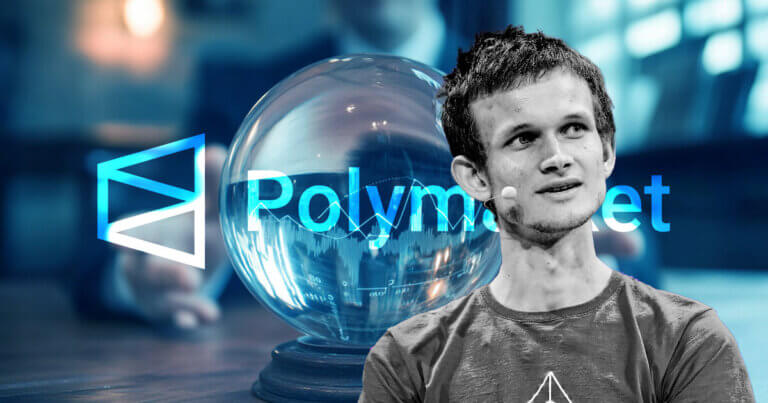ARTICLE AD BOX
 Polymarket can serve as an effective source of information, Buterin says Monika Ghosh · 9 hours ago · 2 min read
Polymarket can serve as an effective source of information, Buterin says Monika Ghosh · 9 hours ago · 2 min read
Ethereum co-founder Vitalik Buterin says 'info finance,' which uses prediction markets, can help solve problems in decentralized governance.

Cover art/illustration via CryptoSlate. Image includes combined content which may include AI-generated content.
Prediction markets like Polymarket can be more than just a platform to bet on elections. They can be a powerful tool with the “potential to create better implementations of social media, science, news, governance, and other fields,” Ethereum co-founder Vitalik Buterin wrote in his blog.
Buterin calls this “info finance.” This is how he defines it:
“…info finance is a discipline where you (i) start from a fact that you want to know, and then (ii) deliberately design a market to optimally elicit that information from market participants.”
According to Buterin, Polymarket turned out to be a “very effective” source of information regarding the U.S. elections this week. Polymarket correctly predicted Trump’s win with 60/40 odds. But the platform also displayed that Trump had over a 95% chance of winning and over a 90% chance of gaining control of all branches of government even as some news sources tried to keep hope alive for vice president Kamala Harris.
Therefore, platforms like Polymarket have two distinct uses—bettors use it to place bets while others can read the charts, treating Polymarket as a news site. Buterin highlighted that he reads the charts of Polymarket as one of the steps in his “information-gathering workflow” and claims that it has helped him “become more informed more efficiently.”
Buterin believes that artificial intelligence (AI) is likely to “turbocharge” info finance over the next decade by participating in prediction markets.
Use Case – DAOs
Info finance has applications in social media as well as decentralized Autonomous Organizations (DAOs). According to Buterin, many DAOs face a common problem: there are too many decisions to be taken and most people are not willing to participate in most of them. This leads to the widespread use of delegation, which raises centralization risks and vulnerability to attacks.
Buterin believes that a DAO could use a prediction market, where humans and AI participate, to predict the votes for smaller decisions. The major decisions can be voted on by DAO members on rare occasions.
Info finance applications can solve “trust problems,” Buterin wrote. This is further made possible now by affordable gas fees on blockchains.
Info finance “contains many potential paths to solving important problems in decentralized governance,” Buterin wrote.









 English (US) ·
English (US) ·